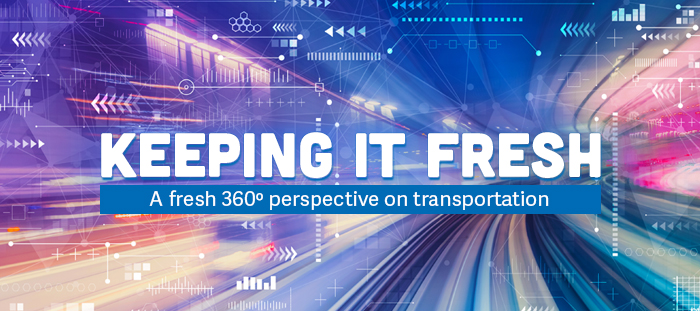Creighton Abrams once said, “When eating an elephant, take one bite at a time.” AI is that elephant in the logistics space that everyone seems to be talking about. Let’s not kid ourselves here, we humans love the opportunity to have something within our grasp, that ultimately will make our lives less laborious, and can provide boundless information whenever and wherever we need it. Within the past week, I would have loved to have had something tell me how to make a beef Wellington from scratch or provide me with college football picks. That time will come, I’m sure, but even before the time comes the conversation about policy and ethics of AI will certainly be debated in many forums.
Ultimately, the idea is that AI can and will eventually surpass a team of people in breadth and scope of work, in mere seconds, it will become the new standard. I opened ChatGPT recently and typed in, “How will AI help supply chains?” The answer was shocking. In a matter of seconds, it gave me a plethora of ways that AI could be beneficial, such as demand forecasting, inventory management, predictive maintenance, blockchain for transparency, and risk management. For those thought-provoking scholars, that means AI can carve vast efficiencies in any supply chain. In a recent article from Nasdaq, “AI is being used worldwide to improve production times and boost safety in manufacturing plants in what is referred to as the ‘Industry 4.0’ era.” Will the human element still be applicable? The short answer is yes. While AI is revolutionizing the supply chain by optimizing processes, predicting demand, and enhancing efficiency, it will never replace the invaluable human connection, compassion and sensible foresight that supports the industry.
So, where would I guess the logistics industry to be in 5 to 10 years from now? Perhaps we’ll see a litany of providers offering up to customers a comprehensive “AI” program to help manage their supply chain stem to stern, or, most likely, staying the course and navigating the nuances of logistics using the best and brightest talent in the industry, which is none other than human capital. This remains essential for fostering collaboration, resolving complex issues, and navigating the unpredictable challenges inherent in the dynamic world of supply chain management. AI may streamline operations, but the industry’s success will always count on the symbiotic relationship between technological innovation and the irreplaceable human element that is required to cultivate and grow businesses.
To read the original article, click here


